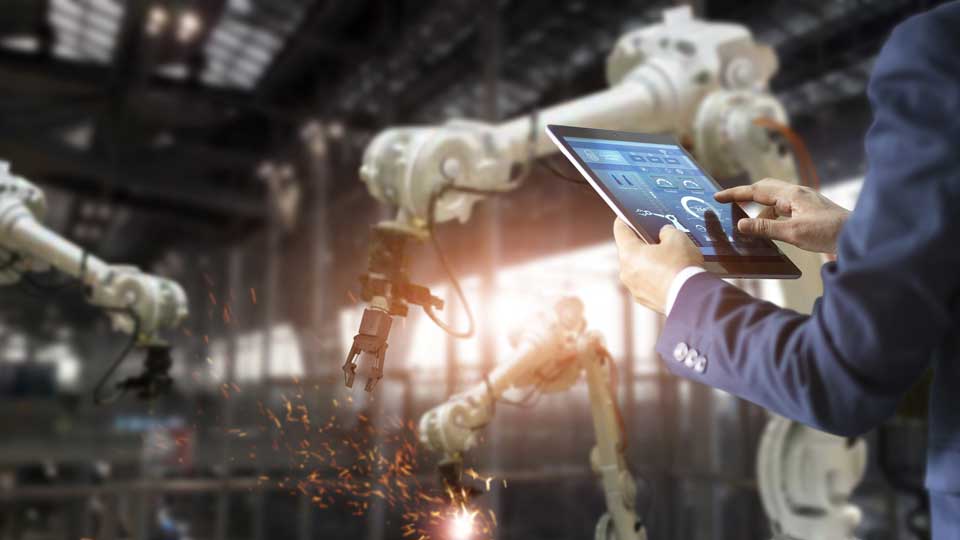
PEJOURNAL – Smart manufacturing ecosystems are accelerating digital transformation and results, with early adopters achieving twice the revenue growth, digital maturity and new product/service delivery as their peers. Seventy-five percent of US manufacturing leaders surveyed are most concerned about the ongoing impact of COVID-19 and economic slowdown on operations, and 72% are concerned with meeting profitability goals.
In response, 62% of leaders surveyed are continuing smart factory investments, allocating 20% more to those initiatives than last year.
Eighty-five percent of manufacturers surveyed believe ecosystems are important or extremely important to their competitiveness.
Why this matters
Ongoing disruption and economic hardship caused by the COVID-19 pandemic have increased the urgency for manufacturers to accelerate smart manufacturing initiatives for future competitiveness. Deloitte and the Manufacturers Alliance for Productivity and Innovation’s (MAPI) new report, “Accelerating Smart Manufacturing: The Value of an Ecosystem Approach,” examines how smart manufacturing initiatives may have been impacted by COVID-19 and suggests an ecosystem approach to help companies stay the course, accelerate digital transformation and drive productivity and performance.
As part of the study, Deloitte and MAPI surveyed more than 850 executives at manufacturing companies across 11 countries in North America, Europe and Asia, representing a factory footprint of approximately 10,000 facilities.
COVID-19 disruption and meeting profitability goals remain the two biggest concerns
More than 70% of manufacturing leaders surveyed are moderately or extremely concerned over the pandemic’s ongoing impact on operations, supply and demand, as well as meeting profitability goals. In many ways, this uncertainty emphasizes the growing importance of adopting smart manufacturing initiatives that can drive agility, speed and performance.
Accordingly, investment in smart manufacturing is expected to rise, taking a greater share of budgets
In a separate MAPI CEO survey, 85% of leaders agreed or strongly agreed that investments in smart factories would rise by June 2021, and similarly the “2020 Deloitte and MAPI Smart Manufacturing Ecosystem Study” found 62% of respondents committing to continuing or accelerating investments. Those forging ahead also indicated they are on average allocating 20% more toward smart factory budgets than last year.
Ecosystem-focused manufacturers outperformed across multiple performance metrics
Overall, the study found manufacturers reaching outside their organization to deliberately connect with vendors and service providers are outperforming others and expediting their digital transformation.
- Eighty-eight percent of surveyed manufacturers agreed that it is important to work with outside partners, vendors and other companies to fully realize their smart manufacturing and digital goals.
- In fact, an analysis of Fortune 500 manufacturers identified that companies with more than 15 strategic alliances registered twice the revenue growth, compared with companies with fewer than 15 alliances.
- The study also revealed that ecosystem-focused manufacturers experienced twice the pace of digital maturity and delivery of new products and services; and had operationalized 31% of their projects versus 15% of projects for those still focused internally.
Business leaders widely endorsed ecosystems, highlighting their transformative potential
The study identified four primary ecosystems that support smart manufacturing initiatives: production, supply chain, customer and talent. Analysis of survey responses found the share of manufacturers pursuing or implementing these ecosystems is 68%, 69%, 51% and 41%, respectively. Overall, respondents acknowledged that they valued working with outside partners and having an ecosystem focus:
- Eighty-five percent of executives surveyed believe production ecosystems are important or extremely important for competitiveness of their business.
- Eighty-five percent of respondents said ecosystems will transform the way manufacturers deliver value and will lead to higher revenue growth and output.
- The top benefits cited were “increasing the pace of new products/services delivery” and “increased revenue from products/services.”
A playbook to maximize value and minimize risks of ecosystems
Creating an ecosystem for smart manufacturing initiatives is not easy. There are many factors that could hinder companies’ efforts to connect with a broader network to advance their key smart manufacturing initiatives, such as coordination difficulties, data protection and cybersecurity concerns, risk of intellectual property theft and highly variable skills and capabilities across factory footprints. The study explores potential approaches to address each challenge and offers a playbook for adoption and implementation.